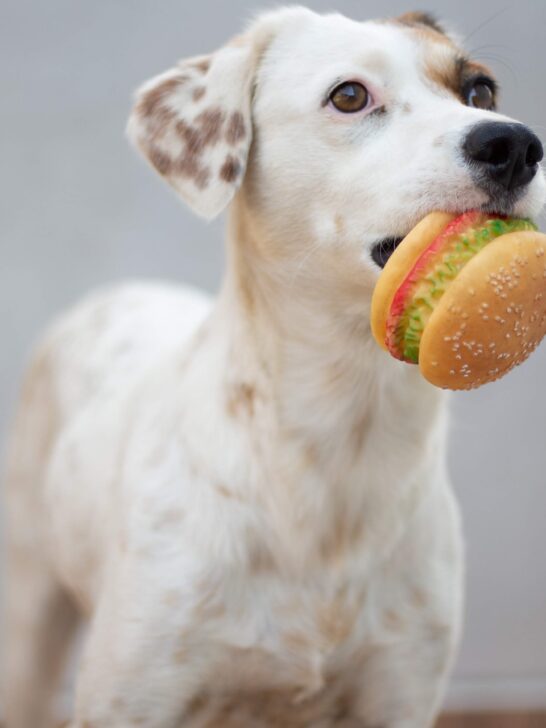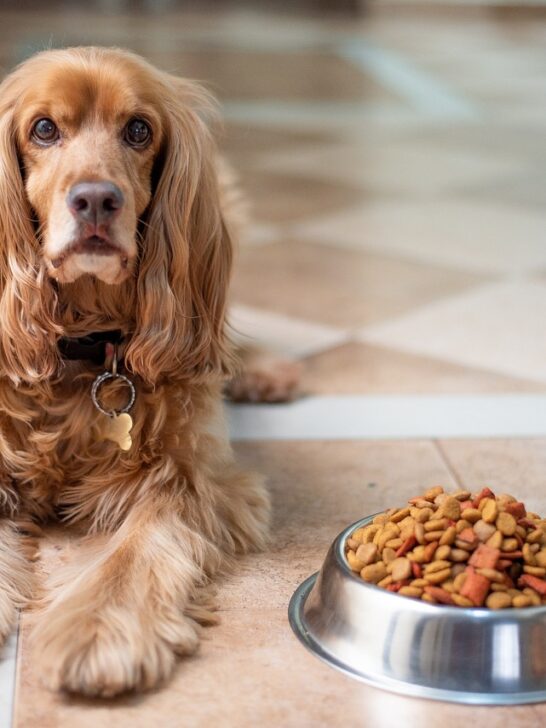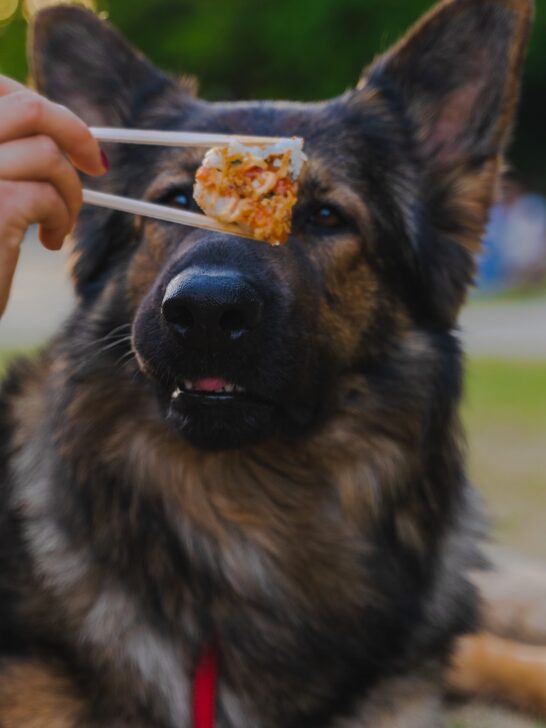Can German Shepherds Eat Eggs: Find Out If Eggs Are Safe For GSDs
The topic of whether German Shepherds can eat eggs is a controversial one in the world of canine veterinarians, dog breeders, trainers, and owners.
Some people believe that eggs in any form, whether raw or cooked, shelled or peeled, are very good for German Shepherds.
Other people believe that German Shepherds should not be fed eggs, while others think they can as long as the eggs are always cooked.
We will take a comprehensive look at this difficult and sometimes divisive issue of whether or not German Shepherds can eat eggs in this article.
Can German Shepherds Eat Eggs? The short and sweet answer to this question is “yes.” German Shepherds can eat eggs.
In most cases, German Shepherds will be able to digest eggs well, especially if they are cooked.
But there are some considerations you need to keep in mind when deciding whether to feed your German Shepherd eggs, as well as how much and how often to feed, and how to prepare those eggs.

Understanding the German Shepherd Digestive Tract
German Shepherds, like all modern domestic dogs, share a wild wolf ancestor. Both ancient and modern wolves are what are called “obligate carnivores.”
This term means that the wolf can only really digest animal protein. The only plant matter a wolf will ever eat will be whatever is in the stomach of their prey, and even that is usually already partially digested.
Modern dogs are not obligate carnivores like cats still are – rather, they are omnivores just like we are.
This means dogs, unlike wolves and cats, can eat both animal and plant matter and digest the nutrients of each.
Eggs in any form are pure animal protein, which means they are certainly on the menu for your German Shepherd, at least in theory.
But like we mentioned earlier here, there is a lot of confusion and some controversy over whether eggs should be in your GSD’s diet, as well as how to prepare them safely for easy digestion.
Should German Shepherd Dogs Eat Eggs?
Eggs are pure animal protein. They are considered to be a complete protein.
For this reason, as What Can Dogs Eat points out, some canine experts and owners even believe that eggs are a necessary (i.e. not optional) part of a pet dog’s diet.
Certainly, if a hungry wild wolf was out and about and found some eggs, that wolf would eat them right away.
Yet not all eggs are equally good for your dog to eat. That is what we will talk about in the next section.
What Are the Best Eggs for German Shepherds to Eat?
As Keystone German Shepherds breeder and kennel explains, all eggs will have some nutritional benefits for GSDs simply because they are pure animal protein.
Yet this does not mean all eggs are created equally.
There can be a big difference between a conventional chicken breeder and an organic poultry farmer’s eggs.
The former is much more likely to be produced by chickens fed growth hormones, antibiotics, and other things that may be toxic to your dog.
The latter is much more likely to be produced as naturally as possible and (hopefully) in a “happy chicken” environment that is low stress for the bird.
The best eggs to feed your German Shepherd are actually also the best eggs for you to eat – whole, organic, natural eggs produced by happy hens in low-stress environments.

What Are the Nutritional Benefits of Eggs for German Shepherd Dogs?
Eggs have a lot to offer your dog, including these nutritional benefits:
- Pure whole and complete animal protein.
- Complete amino acids (the protein building blocks).
- Lots of vitamins including Vitamins A and B12.
- Lots of trace minerals including riboflavin, folate, iron, and selenium.
- Essential fatty acids.
The Best Way to Feed Eggs to Your German Shepherd
If you have been researching the issue of dogs eating eggs for any length of time, you have probably come across the argument that dogs shouldn’t eat eggs because eggs bind with biotin, also known as Vitamin B8 or Vitamin H.
However, as long as you cook the eggs first, and as long as you feed the whole and complete egg (white plus yolk), the risk of dangerous levels of biotin is extremely rare.
Unless eggs are the only thing you feed your GSD.
The hands-down best way to feed eggs to your German Shepherd is whole, cooked and with the shell still on.
The shells pack a punch in terms of their calcium content, which is great for your dog’s bones and teeth.
Can German Shepherds Eat Eggs Every Day?
If your dog had access to eggs every day, you would already know the answer to the question of whether GSDs can eat eggs daily.
A better question is whether a German Shepherd should eat eggs daily. The best answer depends on your dog’s age, life stage, and the number of eggs you are feeding.
As this popular German Shepherd owner forum points out, most German Shepherds on raw diets are eating eggs regularly, and usually daily.
But there may be a side effect you aren’t expecting – farts. The German Shepherd owners on the forum share that their dogs do tend to fart more when eating eggs.
Some owners are better able to tolerate this than others.

Are There Any Dangers of Feeding Eggs to German Shepherds?
It is always smart to look at any new food from all angles before adding it to your German Shepherd’s diet.
This is particularly true if your GSD is still a puppy with an immature gastrointestinal system and a still-developing immune system.
Salmonella and e. coli
Perhaps the biggest fear that dog owners have when it comes to feeding eggs to their German Shepherds is the risk of contamination with salmonella or e. coli bacteria.
Here again, the risk is usually removed completely once you cook the eggs. The heat from the cooking process destroys these dangerous and sometimes deadly bacteria so they can pose no further risk.
However, if you feed raw eggs in whole or in part to your German Shepherd, there will always be a risk that the eggs are carrying salmonella, e. coli, or other harmful bacteria.
The risk increases once the raw egg is broken.
If you are feeding your German Shepherd a completely raw food diet or you plan to start this soon, talk with your dog’s veterinarian about any concerns you have regarding bacterial ingestion.
Biotin deficiency
We already mentioned earlier that feeding raw whites-only may lead to the potential for a biotin deficiency in your dog’s body.
Biotin or Vitamin B8 (Vitamin H) is an important building block for your German Shepherd’s skin, liver, coat, metabolism, and cells.
As long as you cook the whites and feed them with the yolk, it is usually safe to feed eggs without any risk of biotin depletion.
Enzyme inhibitors
The Integrative Veterinary Medicine Centre explains that egg whites contain some known enzyme inhibitors that can cause a digestive disturbance in some dogs.
This means that, once again, eggs are not the best food choice for puppies.
It also means that if your German Shepherd has any known food allergies or issues with a sensitive stomach, you will want to use caution when feeding eggs.
Otherwise, the most likely outcome is just that your GSD will fart more after eating eggs.
Added hormones and antibiotics
As we mentioned earlier, many conventional chicken farms still use growth hormones and antibiotics so that their chickens lay more eggs, and more often.
This controversial practice may even extend to organic chicken eggs and it is definitely something to keep in mind as you add eggs to your German Shepherd’s diet.
There is less risk associated with your GSD ingesting these medications after your dog is done growing.
Other “people food” ingredients
Many people enjoy preparing eggs with other ingredients such as butter or oil, milk, or other dairy like cheese, onions, scallions, mushrooms, garlic, and other ingredients that dogs should not eat.
If you do want to feed your German Shepherd eggs, make sure you are feeding only eggs and not these other ingredients.
Some of these ingredients can cause pancreatitis or digestive upset, and others may be extremely dangerous.
Powdered eggs, egg substitute or egg waste
Dr. Mercola Healthy Pets shares that powdered egg is a common ingredient found in many dog food brands today.
While this doesn’t sound so terrible at first glance, it is how the egg is prepared that may be concerning.
As well, some companies use what is called “egg waste,” which may include eggs that didn’t hatch or eggs that were broken and separated for other uses, exposing the remaining egg to bacteria and spoiling.
Anytime a whole food is taken apart and especially when it is preserved for long term use, there is a danger that the nutritional benefits may be reduced or eliminated and it may actually become toxic.
For this reason, it is always wise to learn as much as you can about how powdered eggs, egg substitutes, and other types of egg products are sourced and made before feeding them to your dog (or eating them yourself).
What Type of Eggs Can a German Shepherd Dog Eat?
Most people are familiar with eating the eggs of chickens, whether as a main dish or prepared in other foods such as bread and baked goods.
But there are lots of other types of eggs that are available as well.
Other eggs that are commonly eaten include quail, duck, goose, pheasant, turkey, and even emu eggs.
Caviar, or fish eggs, are also a popular choice with people, but these eggs do not apply to our discussion of feeding eggs to dogs. You shouldn’t feed your dog caviar because of the high salt content.

How Many Eggs Can a German Shepherd Dog Eat Daily?
If you are just starting to introduce eggs into your German Shepherd’s daily diet, the smartest way to do it is slowly.
German Shepherds tend to be more prone to food allergies and food sensitivities, including a sensitive stomach. Sometimes, these conditions are inherited (genetic).
You definitely don’t want to suddenly overload your dog with eggs only to discover that they upset your dog’s stomach.
So start with half a hard-boiled egg with shell on and wait for 48 hours to see how your dog responds.
If you don’t see anything concerning, you can offer one whole cooked hard-boiled egg with the shell on next time. Then wait another 48 hours.
If all goes well once again, you can add eggs to the regular treat rotation for your dog.
However, if you are adding eggs to your dog’s diet as part of a transition to a partial or complete raw food feeding plan, you will want to involve your veterinarian.
Ideally, you should also consult a canine dietitian to make sure your dog is getting safe and complete food.
With a raw food diet, eggs can be an important source of vitamins and minerals, amino acids, and whole and complete protein.
But as we mentioned earlier, there can also be some concerns about feeding raw eggs safely.
By understanding the potential risks and benefits of eggs for German Shepherds, you can include these tasty treats in your dog’s diet in a safe way.
Watch German Shepherd Puppies Eat Eggs
As this video highlights, German Shepherds certainly can eat eggs – in this case, the eggs are scrambled. And the puppy whines speak for themselves about how delicious they are!
The owner doesn’t say whether the eggs contained any other ingredients but you certainly shouldn’t add anything like salt or butter to the eggs if they are for your GSD.
Recommended Reading:
- What Human Food Can German Shepherds Eat?
- Is Canned Tuna Bad For Dogs? How To Know What’s Safe & What Isn’t
- Can German Shepherds Drink Milk: Why Dairy Milk and Dogs Don’t Mix






























